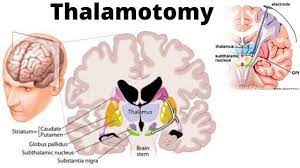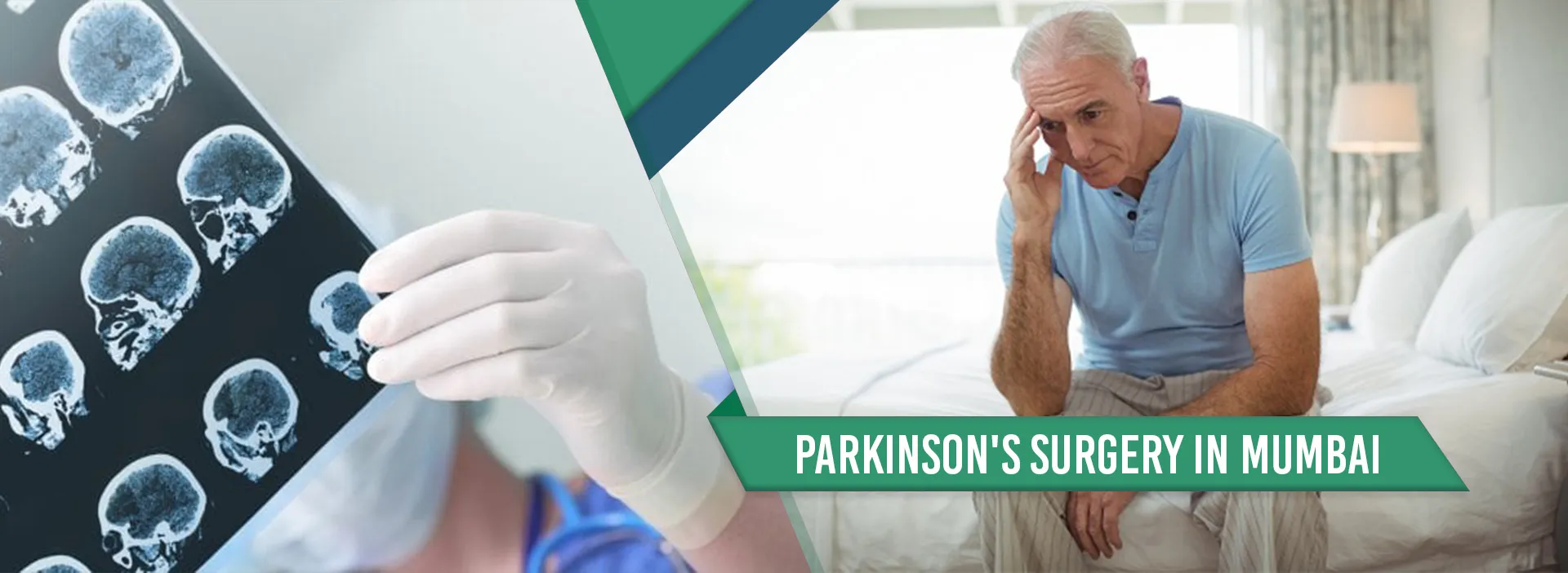Parkinson’s Surgery in Mumbai
Parkinson’s disease distresses the nerve cells in the brain that create dopamine. The symptoms of Parkinson’s disease comprise muscle stiffness, tremors, and alterations in speech and gait. Post diagnosis, Parkinson’s treatment in Mumbai can help alleviate symptoms.
Everyone’s experience of Parkinson’s is different. So, you may require to try various medications, treatments, and therapies to discover what works best for you. Your specialist can offer you personalized advice based on your lifestyle and disease symptoms.
The essential element in your care is having as much comfortable, friendly, and productive a relationship as possible with your doctor. In selecting a doctor for Parkinson’s treatment in Mumbai, your primary considerations must be how much the doctor knows and how well the doctor attends you.
Remember, no two cases of Parkinson’s disease are the same. Having a doctor who recognizes this and who listens to you is essential. When it comes to Parkinson’s disease, “advanced” treatment can mean a new exercise routine for one person, surgery for another.
The multidisciplinary team headed by Dr. Gurneet Sawhney, an experienced neurosurgeon in Mumbai and expert physicians, nurses, physical therapists, and pain management specialists – endows complete, well-integrated care for patients with Parkinson’s disease and many other brain disorders. Here, patients have a comprehensive range of care, from diagnosis to treatment and recovery.
Don't let neurological conditions hold you back
What is Parkinson's Disease?
In the early stages, patients may notice a minor trembling of the hands or difficulties walking. The symptoms may worsen over time, resulting in slurred speech and a variety of physical disabilities.
What are the Causes of Parkinson’s Disease?
- Genetic factors
- Aging
- Environmental damage
- Oxidative damage
What are the Signs and Symptoms of Parkinson’s Disease?
- Shaking
- Handwriting might become unstable and shaky.
- Trembling of the jaw, head, hands, or legs may worsen when the patient is resting and become better when the patient moves.
- Rigidity or stiffness in the limbs and the trunk.
- Loss of balance or unstable posture.
- Stooping posture.
- Bradykinesia – slowness in movements.
- Problems with eating and swallowing, digestion, and urination.
- Skin and sleeping issues.
Experience the expertise and precision of our skilled neurosurgeons
How is Parkinson's Disease Diagnosed?
How is Parkinson's Disease Treated?
Surgery Options for Parkinson's Disease
Brain surgeries for Parkinson’s disease enable these patients to better motor control their movements. In most cases, they are performed after the patients have been on medication and need additional help in motor control in terms of stability, control, and balance.
The neurosurgeon focuses on relieving the involuntary movements of Parkinson’s patients. They diagnose the onset of dyskinesia, which refers to the writhing and erratic movements of the patient’s limbs, face, and trunk region. These movements could be rapid jerks or extended and slow muscle spasms.
The neurosurgeon will conduct an in-depth diagnosis and evaluation of the condition of the patient. The decision to go ahead with the surgery is carefully evaluated regarding the patient’s symptoms, overall health, and the potential benefits of the brain surgery.
The neurosurgery for a Parkinson’s patient will be performed on the deep brain structures, i.e., the thalamus, globuspallidus, and subthalamic nucleus, which control the patient’s movement. The three significant surgeries for Parkinson’s viz. Pallidotomy, Thalamotomy, Deep Brain Stimulation (DBS).
Don't let neurological conditions hold you back
Procedures of Brain Surgeries for Parkinson's Disease
1. Pallidotomy
 The surgeon will perform a pallidotomy in the globuspallidus, a quarter-inch-sized region of the brain. This region controls the movement and becomes hyperactive due to a lack of dopamine in the patient.
The surgeon will perform a pallidotomy in the globuspallidus, a quarter-inch-sized region of the brain. This region controls the movement and becomes hyperactive due to a lack of dopamine in the patient.
Experts feel that lesions to this region will provide the requisite balance essential for normal movement. The neurosurgeon inserts a wire probe to apply the lesions accordingly. Pallidotomy procedures work to eliminate muscle rigidity, tremor, medication-induced dyskinesias, and loss of spontaneous movement.
2. Thalamotomy

Thalamotomy is performed to help patients suffering from essential tremors or disabling tremors in the arm or the hand. The thalamotomy procedure involves using radiofrequency energy currents to destroy a minute and specific portion of the thalamus.
3. Deep Brain Stimulation (DBS)

This procedure is performed to implant small electrodes deep inside the brain to provide an electric impulse to either the globuspallidus or the subthalamic nucleus of the thalamus or areas involved in motor function. These electrodes are connected to an IPG or an impulse generator placed beneath the skin of the collarbone area.
The patients are provided with a controller to switch on and off the device. The electrodes implanted on the left side of the brain control the movement of the right side of the body and vice versa. Single or two electrodes are implanted depending upon the condition of the patient. This type of stimulation assists in rebalancing the control messages in the brain and the tremor movement.
Deep brain stimulation in the subthalamic nucleus or globuspallidus works well in treating motor movement disorders related to Parkinson’s disease and reduced medicine intake. DBS is a very much relied upon and safe alternative to thalamotomy and pallidotomy.
Interested in exploring the potential benefits of functional neurosurgery?
Get your questions answered and discover the possibilities today!
Why Choose Dr. Gurneet Sawhney for Parkinson’s Treatment in Mumbai?
- Dr. Gurneet Singh Sawhney specializes in brain surgery, brain tumor surgery, deep brain stimulation (DBS), epilepsy surgery, spine surgery, Parkinson’s, and seizure treatment.
- Dr. Sawhney is regarded as one of the best neurosurgeons in Mumbai due to his consistent ability to perform result-oriented surgery for catastrophic brain diseases.
- Moreover, he is one of the few neurosurgeons in India who has received training in microneurosurgery, neuroendoscopy, and minimally invasive spine surgery.
- Dr. Gurneet Singh Sawhney, who has over 14 years of experience, has evolved to be a reputed neurosurgeon in Mumbai due to his sheer hard work, devotion, and tenacity.
- Besides, he has vast expertise and experience in managing Parkinson’s patients to live normal lives.
- Dr. Gurneet Sawhney’s kind and welcoming demeanor make him highly approachable to his patients. He can talk in nearly ten languages, making patients feel very comfortable and at ease associating with him during their treatment.
- Consult Dr. Gurneet Sawhney if you are looking for specialists to treat this disease that may be troubling your family member.
Frequently Asked Questions
Parkinson’s disease patients may have tremors as well as cognitive issues such as memory loss and dementia.
The symptoms begin to worsen. Both sides of the body are affected by tremors, stiffness, and other movement abnormalities. The patient may notice issues with walking and posture. The person can still live independently. But regular activities are more challenging and time-consuming.
Aerobic activities that test the cardiorespiratory systems (heart and lungs) include walking, biking, jogging, and pool activities are the best exercises. Parkinson’s disease can be slowed by doing 30 to 40 minutes of aerobic exercise three times a week.
It is long known that Parkinson’s disease produces more than simply movement symptoms but also a slew of non-motor symptoms that affect the entire body. The cardiac system, which includes the heart and blood vessels, is one of the affected organ systems by Parkinson’s.
People with Parkinson’s have trouble sleeping due to the condition and the medications used to treat it. This can make them sleepy during the day.
Anxiety is a typical non-motor symptom of Parkinson’s disease. Stress and anxiety can exacerbate motor symptoms.
Parkinson’s disease worsens over time if left untreated. It can cause a decline in all brain functioning as well as an early death. However, in most Parkinson’s disease patients treated, life expectancy is average or near normal.

